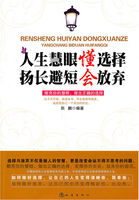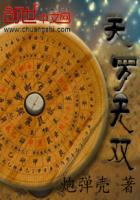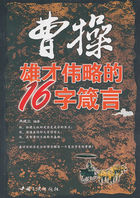But Sir Evelyn Baring was inaudible, and Gordon now cared very little for his opinions. Is it possible that, if only for a moment, in his extraordinary predicament, he may have listened to another and a very different voice--a voice of singular quality, a voice which--for so one would fain imagine--may well have wakened some familiar echoes in his heart? One day, he received a private letter from the Mahdi. The letter was accompanied by a small bundle of clothes. 'In the name of God!' wrote the Mahdi, 'herewith a suit of clothes, consisting of a coat (jibbeh), an overcoat, a turban, a cap, a girdle, and beads. This is the clothing of those who have given up this world and its vanities, and who look for the world to come, for everlasting happiness in Paradise. If you truly desire to come to God and seek to live a godly life, you must at once wear this suit, and come out to accept your everlasting good fortune.' Did the words bear no meaning to the mystic of Gravesend? But he was an English gentleman, an English officer. He flung the clothes to the ground, and trampled on them in the sight of all. Then, alone, he went up to the roof of his high palace, and turned the telescope once more, almost mechanically, towards the north.
But nothing broke the immovability of that hard horizon; and, indeed, how was it possible that help should come to him now? He seemed to be utterly abandoned. Sir Evelyn Baring had disappeared into his financial conference. In England, Mr. Gladstone had held firm, had outfaced the House of Commons, had ignored the Press.
He appeared to have triumphed. Though it was clear that no preparations of any kind were being made for the relief of Gordon, the anxiety and agitation of the public, which had risen so suddenly to such a height of vehemence, had died down. The dangerous beast had been quelled by the stern eye of its master.
Other questions became more interesting--the Reform Bill, the Russians, the House of Lords. Gordon, silent in Khartoum, had almost dropped out of remembrance. And yet, help did come after all. And it came from an unexpected quarter. Lord Hartington had been for some time convinced that he was responsible for Gordon's appointment; and his conscience was beginning to grow uncomfortable.
Lord Hartington's conscience was of a piece with the rest of him.
It was not, like Mr. Gladstone's, a salamander-conscience--an intangible, dangerous creature, that loved to live in the fire; nor was it, like Gordon's, a restless conscience; nor, like Sir Evelyn Baring's, a diplomatic conscience; it was a commonplace affair. Lord Hartington himself would have been disgusted by any mention of it. If he had been obliged, he would have alluded to it distantly; he would have muttered that it was a bore not to do the proper thing. He was usually bored--for one reason or another; but this particular form of boredom he found more intense than all the rest. He would take endless pains to avoid it. Of course, the whole thing was a nuisance--an obvious nuisance; and everyone else must feel just as he did about it.
And yet people seemed to have got it into their heads that he had some kind of special faculty in such matters--that there was some peculiar value in his judgment on a question of right and wrong.
He could not understand why it was; but whenever there was a dispute about cards in a club, it was brought to him to settle.
It was most odd. But it was trite. In public affairs, no less than in private, Lord Hartington's decisions carried an extraordinary weight. The feeling of his idle friends in high society was shared by the great mass of the English people; here was a man they could trust. For indeed he was built upon a pattern which was very dear to his countrymen. It was not simply that he was honest: it was that his honesty was an English honesty--an honest which naturally belonged to one who, so it seemed to them, was the living image of what an Englishman should be.
In Lord Hartington they saw, embodied and glorified, the very qualities which were nearest to their hearts--impartiality, solidity, common sense--the qualities by which they themselves longed to be distinguished, and by which, in their happier moments, they believed they were. If ever they began to have misgivings, there, at any rate, was the example of Lord Hartington to encourage them and guide them--Lord Hartington who was never self-seeking, who was never excited, and who had no imagination at all. Everything they knew about him fitted into the picture, adding to their admiration and respect. His fondness for field sports gave them a feeling of security; and certainly there could be no nonsense about a man who confessed to two ambitions--to become Prime Minister and to win the Derby--and who put the second above the first. They loved him for his casualness--for his inexactness--for refusing to make life a cut-and-dried business--for ramming an official dispatch of high importance into his coat-pocket, and finding it there, still unopened, at Newmarket, several days later. They loved him for his hatred of fine sentiments; they were delighted when they heard that at some function, on a florid speaker's avowing that 'this was the proudest moment of his life', Lord Hartington had growled in an undertone 'the proudest moment of my life was when MY pig won the prize at Skipton Fair'. Above all, they loved him for being dull. It was the greatest comfort--with Lord Hartington they could always be absolutely certain that he would never, in any circumstances, be either brilliant, or subtle, or surprising, or impassioned, or profound. As they sat, listening to his speeches, in which considerations of stolid plainness succeeded one another with complete flatness, they felt, involved and supported by the colossal tedium, that their confidence was finally assured. They looked up, and took their fill of the sturdy, obvious presence. The inheritor of a splendid dukedom might almost have passed for a farm hand. Almost, but not quite.















